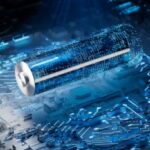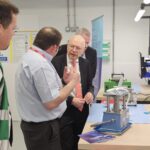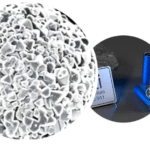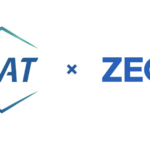- Integrals Power has started production of its proprietary advanced cathode active materials at its pioneering UK pilot plant, in Milton Keynes
- The pilot plant, the UK’s first, capable of producing 20 tonnes a year, demonstrates the technology will scale to volume production
- Integrals Power’s advanced manufacturing process delivers a Lithium Iron Phosphate nanomaterial with 30% more energy storage capacity, higher performance at extreme temperatures, and greater retained capacity over time
- The nanomaterials are ideally suited to manufacturers of high-performance battery cells for static energy storage, electric vehicle, motorsport, aerospace, and defence applications
- Based on a modular design – developed in-house – the facility can be readily scaled to higher volumes in the tens of thousands of tonnes, helping to accelerate the development of the UK battery industry’s domestic supply chain
Milton Keynes, 22.07.2024: Integrals Power has started production of high-performance Lithium Iron Phosphate (LFP) and Lithium Manganese Iron Phosphate (LMFP) cathode active materials at its pioneering new UK pilot plant. This milestone for the UK battery industry will help to accelerate the development of the domestic battery industry and achieve net zero ambitions.
Following successful laboratory trials, Integrals Power is now launching the UK’s first pilot plants producing the company’s proprietary high-performance LFP and LMFP nanomaterials. The new facility has an annual capacity of 20 tonnes, the equivalent to 250 electric cars, which will primarily be used for evaluation by cell suppliers, battery and vehicle manufacturers worldwide.
Establishing manufacturing in the UK is also a boost for the domestic battery industry by reducing its carbon footprint, enhancing supply chain security and transparency, and mitigating geopolitical issues such as import tariffs on EVs and their components. Quality is equally important: Integrals Power’s LFP materials have been assessed as ultra-high purity in a third-party analysis using cutting-edge X-ray diffusion technology to study attributes such as chemical composition and lattice structure of the molecules – these are key to the performance of the material when built into battery cells.
Integrals Power Founder and CEO, Behnam Hormozi, said: “Start of production in our new pilot plant is a key milestone because it enables us to produce our high-performance LFP and LMFP cathode active materials at volume. We believe this is one of the first facilities of its kind in the UK and is exactly the kind of state-of-the-art resource the UK battery industry needs in order to support the sustainable future growth of electromobility.
“The flexibility and scalability we’ve designed into the pilot plant from day one enables us to manufacture different grades of Lithium Iron Phosphate nanomaterials to suit different applications – from long-range electric vehicles through to off-grid energy storage – and to increase capacity to meet demand from customers in the UK and from around the world.”
Developed in-house, Integrals Power has created a modular production facility which can be readily scaled to higher volumes in the future to meet growing customer demand, and also to enable a range of different chemistries to be made. The process takes place over seven stages, and from raw materials to packaged samples ready for customers takes up to 48 hours:
Integrals Power sources all its raw materials from European and North American suppliers which ensures a purer, higher performance LFP and LMFP cathode materials with greater energy density compared to the Chinese-manufactured cathode materials which currently account for around 90%1 of production worldwide.
1 International Energy Agency report: Trends in electric vehicle batteries
Ends
About Integrals Power
Integrals Power is a next-generation battery nano-material company committed to accelerated research, development and commercialisation of proprietary, high-performance, cost effective and scalable battery cathode active materials including Lithium Iron Phosphate (LFP) and Lithium Manganese Iron Phosphate (LMFP). We work closely with academic, research, and industrial partners in collaborative government funded projects to accelerate the commercialisation and scale-up of these novel materials. Our mission is helping to enable the widespread adoption of e-mobility worldwide, contributing to reductions in CO2 emissions, improvements in air quality, and achieving net-zero.







